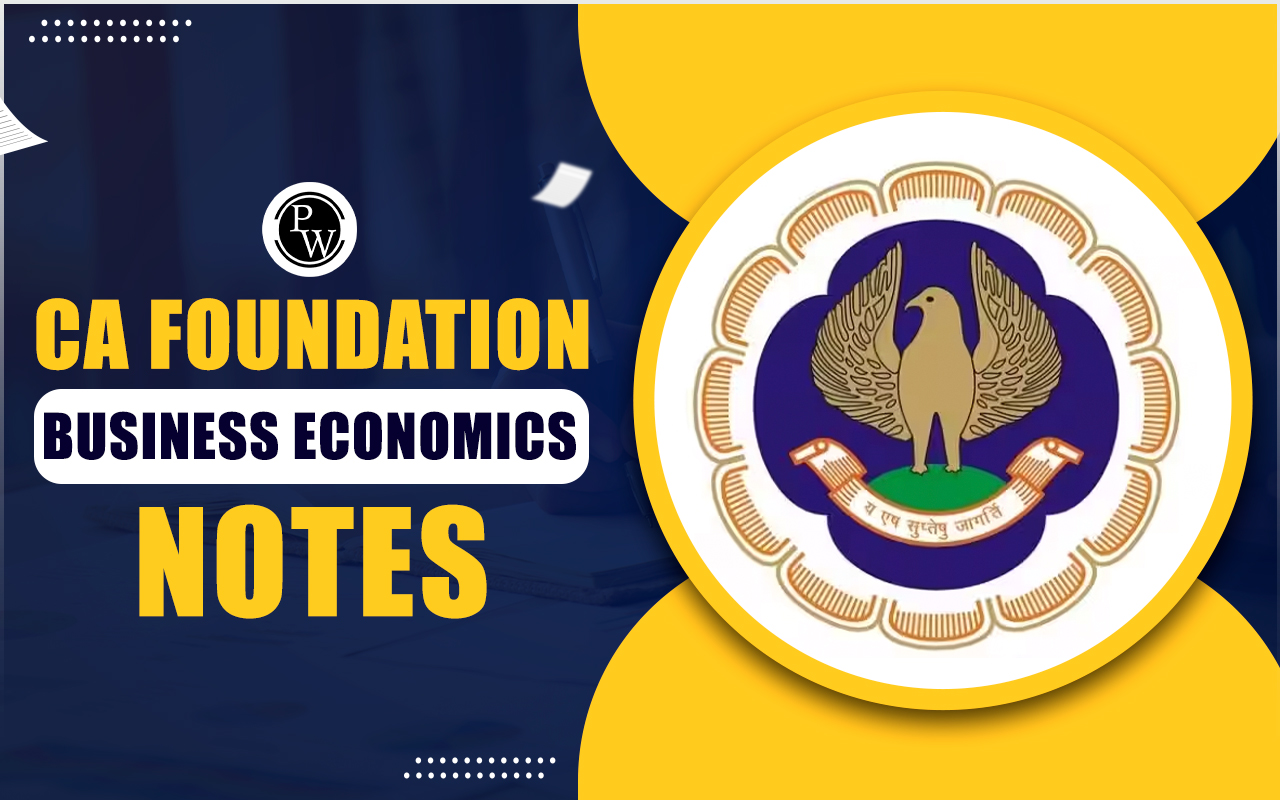
Tax planning and tax management are strategies designed to reduce taxes and improve financial results. Tax planning involves analyzing your finances to make smart decisions that lower your tax bill. Tax management is a broader approach that deals with efficiently handling all tax-related tasks.
In this article, we'll explore the differences between tax planning and tax management for CA Exams , as well as their broader implications.What is the Tax Planning?
Tax planning is a smart way to manage your finances. It involves looking at your money situation to find legal ways to pay less tax. This means choosing the right investments and timing when you get paid to pay less tax. The goal is to keep more of your money and build wealth over time. Tax planning looks at things like how much you earn, where you invest, and what you want to do with your money in the future. It's an important part of managing your personal or business finances. By taking advantage of deductions and exemptions allowed by law, tax planning can save you money. It's not just about paying less tax this year, but also about setting yourself up for a financially secure future, like retirement. This helps ensure that your financial decisions are smart and save you money in the long run.Methods of Tax Planning
The following are the methods of tax planning:- Invest in Tax-Saving Options: Consider options like Equity-Linked Savings Schemes (ELSS), Public Provident Fund (PPF), and National Pension System (NPS) to cut down on taxes. These investments help reduce your taxable income.
- Use Deductions and Exemptions: Make the most of tax laws by leveraging deductions for investments, education loans, and medical insurance. This can lower your taxable income.
- Save for Retirement: Put money into retirement accounts such as 401(k)s, IRAs, or other pension plans to enjoy tax benefits. Contributions to these plans might be tax-deductible, and the growth of your investments is often tax-deferred.
- Harvest Tax Gains and Losses: Selling investments at a loss to offset capital gains elsewhere can lessen your overall tax liability on investment gains.
- Time Your Income and Expenses: Plan when to receive income or make significant purchases to potentially fall into a lower income tax bracket.
- Plan for Tax-Efficient Wealth Transfer: Strategize for estate or gift taxes to minimize the tax impact when transferring wealth.
- Claim Education and Health Expenses: Take deductions for tuition fees and health insurance premiums to decrease your taxable income.
- Leverage Home Loan Benefits: Make use of tax deductions available for home loan interest and principal repayments to reduce your tax liability significantly.
- Make Charitable Contributions: Donations to recognized charities are tax-deductible, helping you lower your tax burden.
- Utilize Tax Advisors: Seek advice from tax professionals to ensure you're effectively using all available tax-saving strategies tailored to your situation.
Also Read: Elements of Cost in Cost Accounting
What Is Tax Management?
Tax management is all about handling your taxes in a smart and legal way. It means following the rules and laws related to taxes to avoid any fines or extra charges. This includes keeping accurate records and filing your tax returns on time. By doing this, you make sure all your financial activities are properly recorded. This process helps you find any deductions or exemptions you're eligible for. Tax management isn't just for businesses – individuals need to do it too. You have to keep up with any changes in tax laws. Doing tax management well can save you from legal troubles and money problems. It's a good idea to work with experts for advice. Managing taxes well is important for your financial health and reputation. It's about being responsible and staying ahead of your tax responsibilities.Methods of Tax Management
The following are the methods of Tax Management:- Keep Detailed Records: Record all your income, expenses, and deductions accurately. This helps when filing taxes and getting ready for audits.
- File Taxes on Time: Submit your tax returns by the deadline to avoid penalties and extra charges.
- Stay Updated: Stay informed about tax laws and rules to comply with them and benefit from new tax breaks.
- Use Tax Software: Make tax preparation easier and error-free by using reliable tax software.
- Get Expert Advice: Seek guidance from tax professionals, especially for complex situations and planning.
- Manage Cash Flow: Plan your finances well to pay taxes on time, preventing last-minute stress.
- Know Deductions and Credits: Understand what deductions and credits you're eligible for to lower your tax bill.
- Review Tax Strategy: Regularly review and adjust your tax strategies to match your financial goals.
- Prepare for Audits: Be ready for audits by keeping proper documentation for all claims and deductions.
- Follow Ethical Practices: Always report taxes honestly and avoid aggressive strategies that could land you in legal trouble.
Tax Planning and Tax Management Differences
In the table below, we'll compare tax planning and tax management across various factors:| Difference Between Tax Planning and Tax Management | ||
|---|---|---|
| Aspect | Tax Planning | Tax Management |
| Definition | A way to lower taxes legally. | Making sure you follow tax laws. |
| Focus | Saving on taxes in the long term. | Dealing with current tax needs and records. |
| Timeline | Planning for the future. | Covers past, present, and future. |
| Strategies | Investing smartly, using deductions. | Accurate filing and record-keeping. |
| Objective | Cut taxes and manage finances better. | Stay legal and penalty-free. |
| Approach | Looking ahead to save on taxes. | Reacting to current tax laws. |
| Tools Used | Investments, life insurance, etc. | Tax software, paperwork, records. |
| Importance for Individuals | Key for personal wealth growth. | Ensures financial safety. |
| Importance for Businesses | Essential for long-term planning. | Keeps businesses legal and reputable. |
| Outcome | More savings, better finances. | Avoids trouble with the law. |
| Also Check | |
| Auditors Responsibilities and Liabilities | Internal Audit Function Effectiveness |
| Fraud Examination | Audit Risk Assessment |
| Auditing Standards and Practices | Credit Management and Control |
Tax Planning and Tax Management FAQs
What is tax planning vs. tax management?
Tax planning focuses on legally minimizing taxes for the long term, while tax management involves adhering to tax laws and efficiently handling tax-related tasks.
How do tax planning and management benefit individuals?
Tax planning helps individuals save money and build wealth over time, while tax management ensures compliance with tax laws, avoiding penalties and legal issues.
What are key strategies for tax planning?
Strategies include investing smartly, leveraging deductions and exemptions, saving for retirement, timing income and expenses, and utilizing tax advisors.
Why is tax management crucial for businesses?
Tax management is essential for businesses to maintain legality, reputation, and financial stability, ensuring accurate filing, record-keeping, and compliance with tax laws.
🔥 Trending Blogs
Talk to a counsellorHave doubts? Our support team will be happy to assist you!

Check out these Related Articles
Free Learning Resources
PW Books
Notes (Class 10-12)
PW Study Materials
Notes (Class 6-9)
Ncert Solutions
Govt Exams
Class 6th to 12th Online Courses
Govt Job Exams Courses
UPSC Coaching
Defence Exam Coaching
Gate Exam Coaching
Other Exams
Know about Physics Wallah
Physics Wallah is an Indian edtech platform that provides accessible & comprehensive learning experiences to students from Class 6th to postgraduate level. We also provide extensive NCERT solutions, sample paper, NEET, JEE Mains, BITSAT previous year papers & more such resources to students. Physics Wallah also caters to over 3.5 million registered students and over 78 lakh+ Youtube subscribers with 4.8 rating on its app.
We Stand Out because
We provide students with intensive courses with India’s qualified & experienced faculties & mentors. PW strives to make the learning experience comprehensive and accessible for students of all sections of society. We believe in empowering every single student who couldn't dream of a good career in engineering and medical field earlier.
Our Key Focus Areas
Physics Wallah's main focus is to make the learning experience as economical as possible for all students. With our affordable courses like Lakshya, Udaan and Arjuna and many others, we have been able to provide a platform for lakhs of aspirants. From providing Chemistry, Maths, Physics formula to giving e-books of eminent authors like RD Sharma, RS Aggarwal and Lakhmir Singh, PW focuses on every single student's need for preparation.
What Makes Us Different
Physics Wallah strives to develop a comprehensive pedagogical structure for students, where they get a state-of-the-art learning experience with study material and resources. Apart from catering students preparing for JEE Mains and NEET, PW also provides study material for each state board like Uttar Pradesh, Bihar, and others
Copyright © 2026 Physicswallah Limited All rights reserved.









